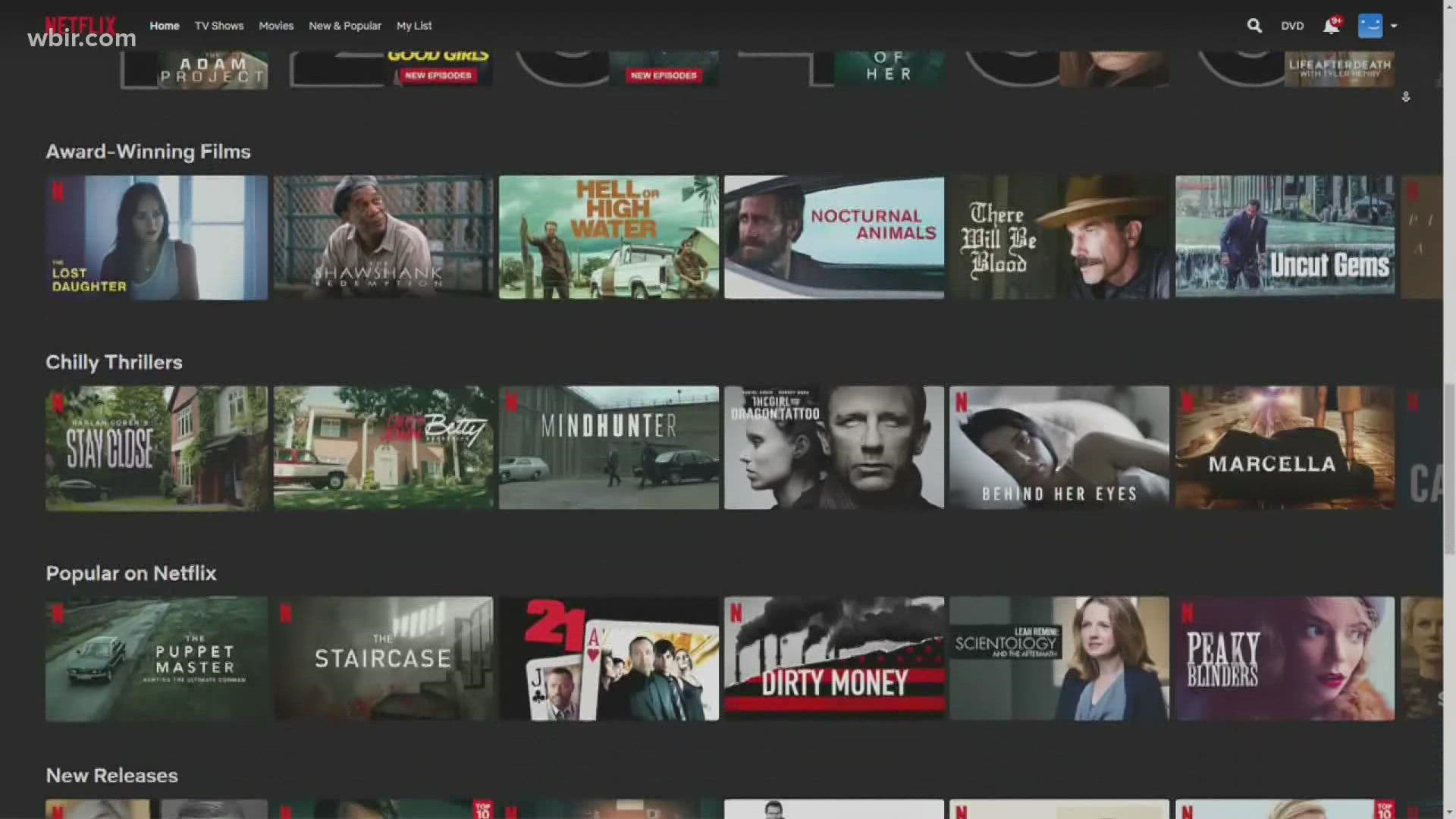WASHINGTON — Internet users are outraged after streaming giant Netflix announced it is testing out an effective password-sharing ban in three countries over the coming weeks.
In a statement posted online, a Netflix spokesperson said that members in Chile, Costa Rica and Peru will need to pay an additional $2.99 USD to add new profiles or will need to transfer streaming data so that additional users can create their own account.
"Accounts are being shared between households - impacting our ability to invest in great new TV and films for our members," wrote Chengyi Long, director of product innovation. "So for the last year we’ve been working on ways to enable members who share outside their household to do so easily and securely, while also paying a bit more."
Long added that Netflix will monitor the "utility of these two features" before the company decides whether to expand these changes, including to the U.S.
Even in its limited rollout, the announcement has caused quite a stir on the internet, with social media users worldwide voicing their frustration with Netflix's decision.
"What Netflix wants to do is a stupidity," tweeted one Chilean user. "There are instances where families live in more than one house; where a miner has an account on his phone and at home and where he wants to watch a movie on his phone. So this will be my last month with Netflix."
In the United States, Twitter users were also frustrated despite the crackdown not yet impacting them.
"We already paying a lot for it, now you're just milking us for every dollar spent," tweeted one person.
Netflix already announced in January prices would be going up this year for most U.S. customers.
In the U.S., Netflix's most expensive plan is increasing by $2, to $19.99; its basic plan is up $1, to $9.99. The company's "standard" plan is increasing to $15.49.
Price increases are becoming more of a regular feature at Netflix, which is facing saturation in the U.S. market. Of Netflix's 213.5 million subscribers, some 74 million are in the U.S. and Canada. It got an influx of global subscribers early in the pandemic, but is investing in video games as it looks beyond movies and TV for growth.
Some, like New York Times contributor Chris Suellentrop, pointed out that the decision may not benefit Netflix when customers nowadays have countless other options for streaming services.
"If I were Netflix, I would crack down on password sharing," tweeted Suellentrop. "But, Netflix’s real problem right now is that its programming is not as good as Hulu’s or HBO Max’s or Disney+’s yet it’s more expensive."
This is not the first time Netflix has launched a trial program to stop password sharing. Last year, the company began rolling out a two-step verification program where users who logged on would need to present a code delivered to an email or phone number associated with the account.

